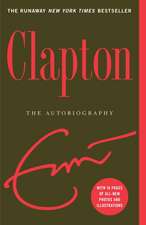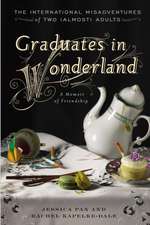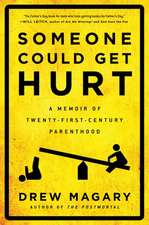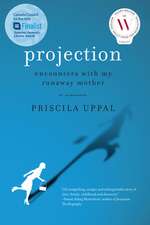Cosmopolitan: A Bartender's Life
Autor Toby Cecchinien Limba Engleză Paperback – 31 aug 2004
Preț: 105.22 lei
Nou
Puncte Express: 158
Preț estimativ în valută:
20.13€ • 21.08$ • 16.66£
20.13€ • 21.08$ • 16.66£
Carte disponibilă
Livrare economică 15-29 martie
Preluare comenzi: 021 569.72.76
Specificații
ISBN-13: 9780767912105
ISBN-10: 0767912101
Pagini: 256
Dimensiuni: 133 x 205 x 15 mm
Greutate: 0.2 kg
Editura: BROADWAY BOOKS
ISBN-10: 0767912101
Pagini: 256
Dimensiuni: 133 x 205 x 15 mm
Greutate: 0.2 kg
Editura: BROADWAY BOOKS
Notă biografică
TOBY CECCHINI is part owner of the bar Passerby, located in New York’s far-west Chelsea neighborhood. He began his bartending career in the mid-eighties at New York’s fabled bar and restaurant Odeon, where he began the Cosmopolitan cocktail revival. Cecchini has also written for the New York Times Magazine and GQ. He lives in New York City.
Extras
CHAPTER I
Rousing the Drunk
In the town of Eau Claire in northern Wisconsin, where my father lives, there is an old wooden saloon called the Joynt on Water Street, just a short block off the Chippewa River. The Joynt functions to this day as all things to all people in that city. It's an egalitarian space by necessity. There is a satellite college of the University of Wisconsin there, cheek by jowl with the old Uniroyal tire factory and myriad paper processing plants. The Joynt has been by turns, and sometimes all at once, a student hangout, a faculty bar, a cop coop, the town's only gay bar, the beer hall for all the sweaty workers getting off their shifts at the factories nearby, a makeshift canteen for the elderly of the area, the only place in town to see live music, a pickup bar, and a quiet place in the afternoon or early evening to sit in the dentist's chair up front by the plate-glass window and read the paper. Beer has gone up to seventy-five cents a tap, from the quarter it was when I was growing up. That will buy you a choice of Leinenkugel's (locally known as Leinie's), Point Special, Berghoff Dark, and Grain Belt Premium Lager, the outsider from Minnesota. There is a neon sign above the bar that reads frankly no light beer.
For most of my life I would visit Eau Claire for one week or so a year, and for the past twenty years, since I could drink in a bar, the trip meant dragging Dad to the Joynt for his annual visit. He's not someone who likes to go to bars in general, but he will indulge me and walk downtown to take a stool, so that we might have a chat and a drink out of the house. I think, in fact, he has grown fond of this outing. He is an artist and so while we talk and sip and watch the goings-on, he surreptitiously sketches people in a little book he carries with him, as easily as someone else might peel beer labels or smoke. The walls are covered with photos of all the musicians who have performed there, most of them jazz players from the 1960s and '70s, when the Joynt was the only jumping-off point between the larger venues of Madison and Minneapolis. There, unbelievably enough, are the smiles and signatures of Duke Ellington, Charles Mingus, John Lee Hooker, McCoy Tyner, Woody Herman, Taj Mahal, Dizzy Gillespie, and other luminaries who, looking about, you cannot conceive of even walking in here, much less performing. This is coasting of a sort; there hasn't been music at the Joynt for many years. A hard-ridden pool table now squats in the back where the stage was. Above the men's room door is my stepmother's photo, from the time she played a piano recital, along with the tenor Richard Drews, for the Joynt's esteemed patrons. A diminutive woman, she appears in the photo, my dad loves to joke over and over, actual size.
The Joynt was my first real taste of what a bar could be to people, that it is in fact an important catalyst in creating the bonds of a community at its simplest: a place where people meet to talk to those they like and learn to live with those they don't. It is probably still the most hermetically perfect example of that social necessity I know of. The Joynt is like a microcosm of all human needs. Even with no other game in town, it is reassuring to think that, at some end of the spectrum, people still have to go out and meet other people. It remains for me not only a fond memory of learning to drink and hanging with my father, but the ideal of what I would like my bar, any bar, to be.
There is precious little to suggest to even the most intrepidly curious Manhattan pedestrian a worthwhile detour down the cheerless, industrial block of West 15th Street from Ninth Avenue to Tenth. The north side consists entirely of the ass-end of the Chelsea Market, composed of one long, continuous brick rampart, inaccessible save for a couple of loading docks, creating an unpleasant funnel down the street that ushers in grit-filled waves of convection in warmer months and stinging blasts in winter. On the south side there's a lumberyard and hardware store manned by surly, overfed men who drive their pickups in from New Jersey, plastered with Devils and Nets stickers. Beyond that a few low, anonymous buildings house a wholesale bakery and some young designers' studios. There's a parking garage and a taxi garage shoulder to shoulder whose shiftless employees litter the sidewalk night and day, vying in multilingual competition for the most salacious wolfcalls toward any women hapless enough to pass down the street. The block ends on a comparative high note with a sparkling new Mobil station--an improbable winner of recent design awards for its sprawling glass and stainless steel walls and mod signage--tucked underneath the rusting girders of a slice of the long-abandoned Tenth Avenue El tracks. From that end the block opens out onto the West Side Highway and is only an eight-iron from the mighty Hudson herself. In winter, when the days are short, I see on my trek to work the most surprisingly glorious sunsets wash across this busy vista, painting the Palisades across the river in gaudy tones. Those who complain of seasonal affective disorder and consider it melancholic upon leaving work to find the day's light already ebbing should try encountering that same ineffable longing on their way to work. It puts things in a whole different light, so to speak.
Wedged in among this low company is my bar, whose anonymous, single-story gray facade is dwarfed by the buildings shouldering it. There is no sign to announce its existence, nor even an address number. Its single window and door giving out onto the street are glazed with deeply smoked glass, creating yet further opacity to inquisitive eyes. The bar is attached to an art gallery, owned by my business partner, and shares with it an entrance hallway. On weekends and Mondays, when the gallery is closed, the shutters are drawn forbiddingly over the whole enterprise. Unshackling the blocky American locks and shooting up the louvered steel gates makes an unholy roar that still makes me wince every day. There are three of these graffiti-spattered brutes to deal with, one over the hallway to the gallery, one over the window of the bar, and the third over the bar's door. It is this last one into which the porter has jammed the prior night's bagged trash, to keep it off the street during daylight hours when city inspectors cruise for infractions to fatten the municipal coffers. Grabbing each bag by the throat, I drag them from the entryway to the street with each one bleeding a thin trail of the mixture of beer, citrus, and ash that has pooled noxiously where they lay. I palm what we call the shepherd's crook, a long, hooked metal rod used for pulling the gates down, tucked inside the final gate by the bartender who closed last night, and bring it in so that tonight's screwballs don't make off with it. It's happened several times, though we've always gotten it back. They lose interest in it down the block somewhere, and I'll spot it poking out of the hardware store's Dumpster or, if the thief's attention span is particularly long, sometimes as far as the wire trash can on the corner, with one of my pint glasses on the ground next to it.
Inside the hallway, the universal odor of smoke and beer applied nightly for years in varying coats licks at me comfortingly, like an old, flatulent dog. I unlock the inner doors and wind up the opaque shade that separates the bar from the gallery in daytime. Mixed now with the stale smell of cigarettes and beer is the tang of Mr. Clean and bleach from Polo, the porter, having turned back the nightly tide of filth. He has left for me on the bartop, stuffed between the upside-down stools lined up like dead trees, a crumpled black windbreaker and a Palm Pilot, last night's leavings. On the cash register is a note in his childlike scrawl, with helpful sketches in the margin: "Hi Tobe: plese we need/its to old the mop/1 mop mop/1 brud vrom/1 pepier hans/1 beach/also is brok the hammel/only no work for one/Polo." The paper hand towels, mops, and bleach I get, the broom takes me a moment. The third part will have to be sent to the linguistics lab for translation by Polo-ologists. Apparently something's broken.
I notice the light blinking on the answering machine and try to punch the play button. It is gummed over yet again from someone carelessly rimming margarita glasses in the salt next to it and won't budge. I turn on the fans and the underbar lights, startling the resident fruit fly population vacationing in the drains and setting a cloud of them flitting about me for a moment. After moving down the line of the bar on the outside, pulling down the upended stools and tugging them into place, I circle the room flipping on all the industrial toggles. This is the part that feels like currying the bar to life, rousing the aching drunk despite its groans: the heat, the ceiling fans, the smoke ducts, the dishwasher, the coffee machine, the calculator, the cash register. Out of the dead silence, everything is all at once abuzz, whirring and flashing and blowing. The big red master switch that controls the stereo goes on with a pop as the juice from the amps reaches the speakers. The salient feature of my bar is that it is constructed entirely on a lighted disco floor, of the variety introduced to public recognition by Saturday Night Fever. When I snap on the four breakers that control the floor lights, the crackling and humming of the light pattern bleeds faintly through the speakers, like the sound effects from the evil scientist's laboratory in a cheap horror flick.
I fish out my keys and head through the locked door to the gallery, which also contains my liquor room. In contrast to the spare white of the gallery with its skylights, the jumbled murkiness of the liquor room is comforting, with rows of kegs stacked like oil drums and my bike hanging from hooks driven into the overhead shelving. My office, inasmuch as I have one, is here. Papers for my perusal and files are spread among bottles on a corrugated tin shelf that holds the wine inventory. My desk consists of a box that I use for a seat, pushed up against the ice machine, which becomes the backrest. The choice of box is very important; it must be one that is an ergonomically comfortable height as well as sturdy. The double-walled Stolichnaya boxes make particularly good perches, and the Prosecco cases, when stacked, are also quite cushy. Balancing the ledger book in my lap, I go over the bank sheets and the drop from the night before and cull from that the opening till. I lock the safe back up and untie my shoes. I remove the khakis and blue button-down shirt I've been wearing and swap them for jeans and a black T. I layer an extra pair of socks over the ones I'm wearing and pull on the black Red Wing boots I've customized with extra-thick rubber insoles. I fold my daytime clothes and zip them into my backpack and then stuff my sneakers under the wine rack.
Long ago I learned I need to arrive well ahead of my shift's starting time, to give myself ample mental space to pull on the armor required to weather another night of indignities and inebriation. It has simply become part of the opening process, like anyone else putting on a uniform to go to work. If you remove fiberglass insulation for a living, you don a protective suit to go to work. Although the toxins inherent in my job are not quite as tangible, I find I need the same kind of protective remove, and it takes time to put it on. Drawing a deep breath, I lean back against the ice machine and stare up absently at the rows of liquor bottles extending almost to the ceiling. I sit this way for several minutes, my hands propped placidly on my knees, listening to the quiet. I'll be sitting back down on this box, putting my other shoes back on, in just twelve or fifteen hours.
Those summer visits upstate to see my dad in Eau Claire provided my introduction to hard alcohol, long before I was old enough to enter the Joynt. My brothers and sisters and I had always been allowed a trace of red wine mixed into a glass of water along with our pasta growing up, quite a goose for a kid. We were thrilled to be so trusted; it made us feel a part of the adult world. My father was born and raised in Italy and so never shared the American binge/purge ambivalence toward alcohol. Wine with meals was his birthright, simply a normal part of life for him, the way everyone else around us in Wisconsin drank milk with every meal. He saw no problem with treating his children like real people and including them in this custom. I haven't had that pale-pink dilution in almost thirty years, but I can recall exactly its flavor, the burr of the tannins roughing up my tongue.
Speaking in confused wonder still about Americans' juvenile relationship to alcohol, he told me a story from the end of the Second World War in Florence. Out walking early one morning, he and his sister came upon a crowd silently taking in a spectacle so incredible to them that many years later, he still marvels at it. Still up after an all-night bender, some American G.I.'s were lolling on the steps of Santa Croce, bleary drunk, passing a flask of wine back and forth, singing and carrying on like one would imagine G.I.'s might well be doing, away from home for the first time and flush from chasing out the Axis Powers. In Italy, though, he explains, wine isn't abused that way. Further, there a man measured his masculinity in many ways that might seem odd to us, but it simply went without saying that no man worth being called such would ever be seen as unable to hold his drink. You would never drink that much to begin with, but slurring? Singing? Carrying on like silly adolescents who had chanced across a bottle--and on the steps of a church!? The crowd couldn't conceive of what they were seeing; it was unconscionable. The G.I.'s had seemed to them the swaggering cowboys who stormed in on waves of adulation to liberate them. It would be like us witnessing John Wayne stumbling out of a drag bar, then stopping to take a piss on the American flag. But the longer my dad spent in America, he said, the more he understood those sacrilegious soldiers. Our puritanical backbone still heavily influences all of our views, alcohol not the least. Most Americans, he explained, aren't quite sure how to simply enjoy alcohol. They are like children, fascinated, so they abuse it, then they're afraid of it. A touch simplistic maybe, but not terribly far from the truth.
From the Hardcover edition.
Rousing the Drunk
In the town of Eau Claire in northern Wisconsin, where my father lives, there is an old wooden saloon called the Joynt on Water Street, just a short block off the Chippewa River. The Joynt functions to this day as all things to all people in that city. It's an egalitarian space by necessity. There is a satellite college of the University of Wisconsin there, cheek by jowl with the old Uniroyal tire factory and myriad paper processing plants. The Joynt has been by turns, and sometimes all at once, a student hangout, a faculty bar, a cop coop, the town's only gay bar, the beer hall for all the sweaty workers getting off their shifts at the factories nearby, a makeshift canteen for the elderly of the area, the only place in town to see live music, a pickup bar, and a quiet place in the afternoon or early evening to sit in the dentist's chair up front by the plate-glass window and read the paper. Beer has gone up to seventy-five cents a tap, from the quarter it was when I was growing up. That will buy you a choice of Leinenkugel's (locally known as Leinie's), Point Special, Berghoff Dark, and Grain Belt Premium Lager, the outsider from Minnesota. There is a neon sign above the bar that reads frankly no light beer.
For most of my life I would visit Eau Claire for one week or so a year, and for the past twenty years, since I could drink in a bar, the trip meant dragging Dad to the Joynt for his annual visit. He's not someone who likes to go to bars in general, but he will indulge me and walk downtown to take a stool, so that we might have a chat and a drink out of the house. I think, in fact, he has grown fond of this outing. He is an artist and so while we talk and sip and watch the goings-on, he surreptitiously sketches people in a little book he carries with him, as easily as someone else might peel beer labels or smoke. The walls are covered with photos of all the musicians who have performed there, most of them jazz players from the 1960s and '70s, when the Joynt was the only jumping-off point between the larger venues of Madison and Minneapolis. There, unbelievably enough, are the smiles and signatures of Duke Ellington, Charles Mingus, John Lee Hooker, McCoy Tyner, Woody Herman, Taj Mahal, Dizzy Gillespie, and other luminaries who, looking about, you cannot conceive of even walking in here, much less performing. This is coasting of a sort; there hasn't been music at the Joynt for many years. A hard-ridden pool table now squats in the back where the stage was. Above the men's room door is my stepmother's photo, from the time she played a piano recital, along with the tenor Richard Drews, for the Joynt's esteemed patrons. A diminutive woman, she appears in the photo, my dad loves to joke over and over, actual size.
The Joynt was my first real taste of what a bar could be to people, that it is in fact an important catalyst in creating the bonds of a community at its simplest: a place where people meet to talk to those they like and learn to live with those they don't. It is probably still the most hermetically perfect example of that social necessity I know of. The Joynt is like a microcosm of all human needs. Even with no other game in town, it is reassuring to think that, at some end of the spectrum, people still have to go out and meet other people. It remains for me not only a fond memory of learning to drink and hanging with my father, but the ideal of what I would like my bar, any bar, to be.
There is precious little to suggest to even the most intrepidly curious Manhattan pedestrian a worthwhile detour down the cheerless, industrial block of West 15th Street from Ninth Avenue to Tenth. The north side consists entirely of the ass-end of the Chelsea Market, composed of one long, continuous brick rampart, inaccessible save for a couple of loading docks, creating an unpleasant funnel down the street that ushers in grit-filled waves of convection in warmer months and stinging blasts in winter. On the south side there's a lumberyard and hardware store manned by surly, overfed men who drive their pickups in from New Jersey, plastered with Devils and Nets stickers. Beyond that a few low, anonymous buildings house a wholesale bakery and some young designers' studios. There's a parking garage and a taxi garage shoulder to shoulder whose shiftless employees litter the sidewalk night and day, vying in multilingual competition for the most salacious wolfcalls toward any women hapless enough to pass down the street. The block ends on a comparative high note with a sparkling new Mobil station--an improbable winner of recent design awards for its sprawling glass and stainless steel walls and mod signage--tucked underneath the rusting girders of a slice of the long-abandoned Tenth Avenue El tracks. From that end the block opens out onto the West Side Highway and is only an eight-iron from the mighty Hudson herself. In winter, when the days are short, I see on my trek to work the most surprisingly glorious sunsets wash across this busy vista, painting the Palisades across the river in gaudy tones. Those who complain of seasonal affective disorder and consider it melancholic upon leaving work to find the day's light already ebbing should try encountering that same ineffable longing on their way to work. It puts things in a whole different light, so to speak.
Wedged in among this low company is my bar, whose anonymous, single-story gray facade is dwarfed by the buildings shouldering it. There is no sign to announce its existence, nor even an address number. Its single window and door giving out onto the street are glazed with deeply smoked glass, creating yet further opacity to inquisitive eyes. The bar is attached to an art gallery, owned by my business partner, and shares with it an entrance hallway. On weekends and Mondays, when the gallery is closed, the shutters are drawn forbiddingly over the whole enterprise. Unshackling the blocky American locks and shooting up the louvered steel gates makes an unholy roar that still makes me wince every day. There are three of these graffiti-spattered brutes to deal with, one over the hallway to the gallery, one over the window of the bar, and the third over the bar's door. It is this last one into which the porter has jammed the prior night's bagged trash, to keep it off the street during daylight hours when city inspectors cruise for infractions to fatten the municipal coffers. Grabbing each bag by the throat, I drag them from the entryway to the street with each one bleeding a thin trail of the mixture of beer, citrus, and ash that has pooled noxiously where they lay. I palm what we call the shepherd's crook, a long, hooked metal rod used for pulling the gates down, tucked inside the final gate by the bartender who closed last night, and bring it in so that tonight's screwballs don't make off with it. It's happened several times, though we've always gotten it back. They lose interest in it down the block somewhere, and I'll spot it poking out of the hardware store's Dumpster or, if the thief's attention span is particularly long, sometimes as far as the wire trash can on the corner, with one of my pint glasses on the ground next to it.
Inside the hallway, the universal odor of smoke and beer applied nightly for years in varying coats licks at me comfortingly, like an old, flatulent dog. I unlock the inner doors and wind up the opaque shade that separates the bar from the gallery in daytime. Mixed now with the stale smell of cigarettes and beer is the tang of Mr. Clean and bleach from Polo, the porter, having turned back the nightly tide of filth. He has left for me on the bartop, stuffed between the upside-down stools lined up like dead trees, a crumpled black windbreaker and a Palm Pilot, last night's leavings. On the cash register is a note in his childlike scrawl, with helpful sketches in the margin: "Hi Tobe: plese we need/its to old the mop/1 mop mop/1 brud vrom/1 pepier hans/1 beach/also is brok the hammel/only no work for one/Polo." The paper hand towels, mops, and bleach I get, the broom takes me a moment. The third part will have to be sent to the linguistics lab for translation by Polo-ologists. Apparently something's broken.
I notice the light blinking on the answering machine and try to punch the play button. It is gummed over yet again from someone carelessly rimming margarita glasses in the salt next to it and won't budge. I turn on the fans and the underbar lights, startling the resident fruit fly population vacationing in the drains and setting a cloud of them flitting about me for a moment. After moving down the line of the bar on the outside, pulling down the upended stools and tugging them into place, I circle the room flipping on all the industrial toggles. This is the part that feels like currying the bar to life, rousing the aching drunk despite its groans: the heat, the ceiling fans, the smoke ducts, the dishwasher, the coffee machine, the calculator, the cash register. Out of the dead silence, everything is all at once abuzz, whirring and flashing and blowing. The big red master switch that controls the stereo goes on with a pop as the juice from the amps reaches the speakers. The salient feature of my bar is that it is constructed entirely on a lighted disco floor, of the variety introduced to public recognition by Saturday Night Fever. When I snap on the four breakers that control the floor lights, the crackling and humming of the light pattern bleeds faintly through the speakers, like the sound effects from the evil scientist's laboratory in a cheap horror flick.
I fish out my keys and head through the locked door to the gallery, which also contains my liquor room. In contrast to the spare white of the gallery with its skylights, the jumbled murkiness of the liquor room is comforting, with rows of kegs stacked like oil drums and my bike hanging from hooks driven into the overhead shelving. My office, inasmuch as I have one, is here. Papers for my perusal and files are spread among bottles on a corrugated tin shelf that holds the wine inventory. My desk consists of a box that I use for a seat, pushed up against the ice machine, which becomes the backrest. The choice of box is very important; it must be one that is an ergonomically comfortable height as well as sturdy. The double-walled Stolichnaya boxes make particularly good perches, and the Prosecco cases, when stacked, are also quite cushy. Balancing the ledger book in my lap, I go over the bank sheets and the drop from the night before and cull from that the opening till. I lock the safe back up and untie my shoes. I remove the khakis and blue button-down shirt I've been wearing and swap them for jeans and a black T. I layer an extra pair of socks over the ones I'm wearing and pull on the black Red Wing boots I've customized with extra-thick rubber insoles. I fold my daytime clothes and zip them into my backpack and then stuff my sneakers under the wine rack.
Long ago I learned I need to arrive well ahead of my shift's starting time, to give myself ample mental space to pull on the armor required to weather another night of indignities and inebriation. It has simply become part of the opening process, like anyone else putting on a uniform to go to work. If you remove fiberglass insulation for a living, you don a protective suit to go to work. Although the toxins inherent in my job are not quite as tangible, I find I need the same kind of protective remove, and it takes time to put it on. Drawing a deep breath, I lean back against the ice machine and stare up absently at the rows of liquor bottles extending almost to the ceiling. I sit this way for several minutes, my hands propped placidly on my knees, listening to the quiet. I'll be sitting back down on this box, putting my other shoes back on, in just twelve or fifteen hours.
Those summer visits upstate to see my dad in Eau Claire provided my introduction to hard alcohol, long before I was old enough to enter the Joynt. My brothers and sisters and I had always been allowed a trace of red wine mixed into a glass of water along with our pasta growing up, quite a goose for a kid. We were thrilled to be so trusted; it made us feel a part of the adult world. My father was born and raised in Italy and so never shared the American binge/purge ambivalence toward alcohol. Wine with meals was his birthright, simply a normal part of life for him, the way everyone else around us in Wisconsin drank milk with every meal. He saw no problem with treating his children like real people and including them in this custom. I haven't had that pale-pink dilution in almost thirty years, but I can recall exactly its flavor, the burr of the tannins roughing up my tongue.
Speaking in confused wonder still about Americans' juvenile relationship to alcohol, he told me a story from the end of the Second World War in Florence. Out walking early one morning, he and his sister came upon a crowd silently taking in a spectacle so incredible to them that many years later, he still marvels at it. Still up after an all-night bender, some American G.I.'s were lolling on the steps of Santa Croce, bleary drunk, passing a flask of wine back and forth, singing and carrying on like one would imagine G.I.'s might well be doing, away from home for the first time and flush from chasing out the Axis Powers. In Italy, though, he explains, wine isn't abused that way. Further, there a man measured his masculinity in many ways that might seem odd to us, but it simply went without saying that no man worth being called such would ever be seen as unable to hold his drink. You would never drink that much to begin with, but slurring? Singing? Carrying on like silly adolescents who had chanced across a bottle--and on the steps of a church!? The crowd couldn't conceive of what they were seeing; it was unconscionable. The G.I.'s had seemed to them the swaggering cowboys who stormed in on waves of adulation to liberate them. It would be like us witnessing John Wayne stumbling out of a drag bar, then stopping to take a piss on the American flag. But the longer my dad spent in America, he said, the more he understood those sacrilegious soldiers. Our puritanical backbone still heavily influences all of our views, alcohol not the least. Most Americans, he explained, aren't quite sure how to simply enjoy alcohol. They are like children, fascinated, so they abuse it, then they're afraid of it. A touch simplistic maybe, but not terribly far from the truth.
From the Hardcover edition.
Recenzii
“Marvelous. Toby Cecchini is no part-time, blender-drink-slinging woo-woo pouring dilettante. He's a professional. A hard, wise, funny, sad and unflinching look at the world from the other side of the bar. Beautifully written, as fascinating for its backstairs account of hip restaurant/bar/lounge hijinks as it is for its unique perspective on human behavior. New York night life in all its true, hilarious, horrific, poignant and pinheaded glory.”
-Anthony Bourdain, author of Kitchen Confidential
“Toby Cecchini is something of an expert in creating hospitable environments: for drinkers with his bar, and for readers with this book. He writes with a quiet, lucid style about a profession that is generally loud and chaotic, and he makes almost every aspect of his bartending vocation, including, and perhaps especially, the bad behavior of some of his patrons, totally engaging. He has also captured an essence of New York life in the way that Midwesterners are, for some reason, uniquely able to capture it. Finally, though this book’s title is an overt reference to a particular mixed drink, what it embodies and anatomizes so well is an outlook on the world, in this case from behind a bar.”
-Tom Beller, author of Seduction Theory and The Sleepover Artist
From the Hardcover edition.
-Anthony Bourdain, author of Kitchen Confidential
“Toby Cecchini is something of an expert in creating hospitable environments: for drinkers with his bar, and for readers with this book. He writes with a quiet, lucid style about a profession that is generally loud and chaotic, and he makes almost every aspect of his bartending vocation, including, and perhaps especially, the bad behavior of some of his patrons, totally engaging. He has also captured an essence of New York life in the way that Midwesterners are, for some reason, uniquely able to capture it. Finally, though this book’s title is an overt reference to a particular mixed drink, what it embodies and anatomizes so well is an outlook on the world, in this case from behind a bar.”
-Tom Beller, author of Seduction Theory and The Sleepover Artist
From the Hardcover edition.










